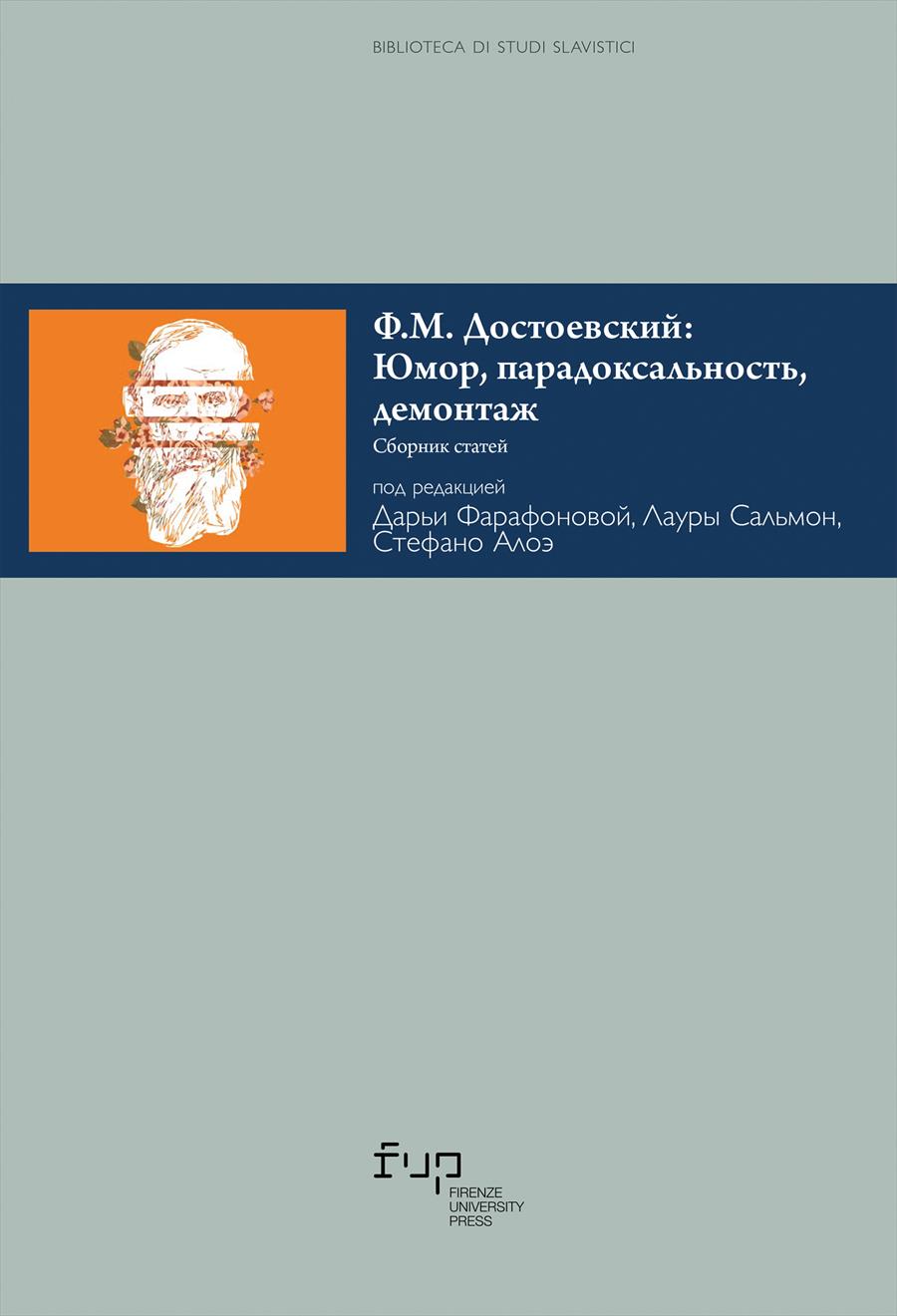- Ф.М. Достоевский: Юмор, парадоксальность, демонтаж
- Edited by Dar'ja Farafonova, Laura Salmon, Stefano Aloe
Нелепые отцы в художественном мире Ф.М. Достоевского
- Christoph Garstka
- © 2023 Author(s) |
- CC BY 4.0
- DOI: 10.36253/979-12-215-0122-3.09
Funny Fathers. Types of the ridiculous old man in Dostoevsky’s novels. The first chapters from Dostoevsky’s novel Netochka Nezvanova deal with the fate and the peculiar story of life of the heroine’s stepfather. He is called Efimov and, being an alcoholic and overconfident, he plunges his family into misery. Therefore, he can be considered a prototype of ridiculous father figures occurring in the great novels (Marmeladov from Crime and Punishment, General Ivolgin from The Idiot and Stepan Trofimovič from The Demons). The article focuses on the determining character traits of these figures who embody the dramatic failure of the father generation. While characterising those laughable vecchi, special attention is given to the seemingly paradox criterium of the tragicomic, which finally results in questioning the tension between freedom and a predetermined fate.
- Keywords:
- Dostoevsky – Netochka Nezvanova – Tragicomic – Asthetic existence – Hybris,
Ruhr-University Bochum, Germany - ORCID: 0009-0004-9454-139X
- Bergson, Henri. (1900) 2011. Das Lachen: ein Essay über die Bedeutung des Komischen, übersetzt von Roswitha Plancherel-Walter. Hamburg: Felix Meiner.
- Garstka, Christoph. 1998. “Der «Lügengeneral» Iwolgin in Dostojewskijs Roman Der Idiot.” DOI: 10.11588/heidok.00006938
- Gibian, George. 1958. “The Grotesque in Dostoevsky.” Modern Fiction Studies 3/4: 262-70.
- Jung, Carl Gustav. 1944. Psychologie und Alchemie. Zürich: Rascher.
- Kaufmann, Walter. 1980. Tragödie und Philosophie. Tübingen: Mohr Siebeck.
- Maslow, Abraham H. 1966. The Psychology of Science: A Reconnaissance. New York: Harper Collins.
- Riehle, Wolfgang. 2002. “Zum Paradoxon bei Shakespeare.” In Das Paradox. Eine Herausforderung des abendländischen Denkens, Hg. Roland Hanbüchle und Paul Geyer, 335-52. Würzburg: Königshausen & Neumann.
- Weiss, Gabriele. 2005. “Distanzierung des Selbst und ästhetische Existenz.” In Erziehung – Bildung – Negativität, Hg. Dietrich Benner (Zeitschrift für Pädagogik 49), 77-87. Beltz: Weinheim.
- Zimmermann, Jörg. 2004. “Ästhetische Existenz. Wandel und Aktualität einer anthropologisch zentralen Kategorie.” In Ästhetik. Aufgabe(n) einer Wissenschaftsdisziplin, Hg. Karin Hirdina und Renate Reschke, 31-47. Freiburg: Rombach.
- Кьеркегор, Сёрен. 2011. Или – или. Фрагмент из жизни, в 2 ч. Пер. с датского, вступ. ст., коммент., примеч. Н. Исаевой и С. Исаева. Санкт-Петербург: Амфор.
- Кьеркегор, Сёрен. 2014. Болезнь к смерти. Пер. с датского, вступ. ст. и примеч. Н. Исаевой и С. Исаева. Москва: Академический проект.
Chapter Information
Chapter Title
Нелепые отцы в художественном мире Ф.М. Достоевского
Authors
Christoph Garstka
Language
Russian
DOI
10.36253/979-12-215-0122-3.09
Peer Reviewed
Publication Year
2023
Copyright Information
© 2023 Author(s)
Content License
Metadata License
Bibliographic Information
Book Title
Ф.М. Достоевский: Юмор, парадоксальность, демонтаж
Editors
Dar'ja Farafonova, Laura Salmon, Stefano Aloe
Peer Reviewed
Number of Pages
222
Publication Year
2023
Copyright Information
© 2023 Author(s)
Content License
Metadata License
Publisher Name
Firenze University Press
DOI
10.36253/979-12-215-0122-3
ISBN Print
979-12-215-0121-6
eISBN (pdf)
979-12-215-0122-3
eISBN (epub)
979-12-215-0123-0
Series Title
Biblioteca di Studi Slavistici
Series ISSN
2612-7687
Series E-ISSN
2612-7679
